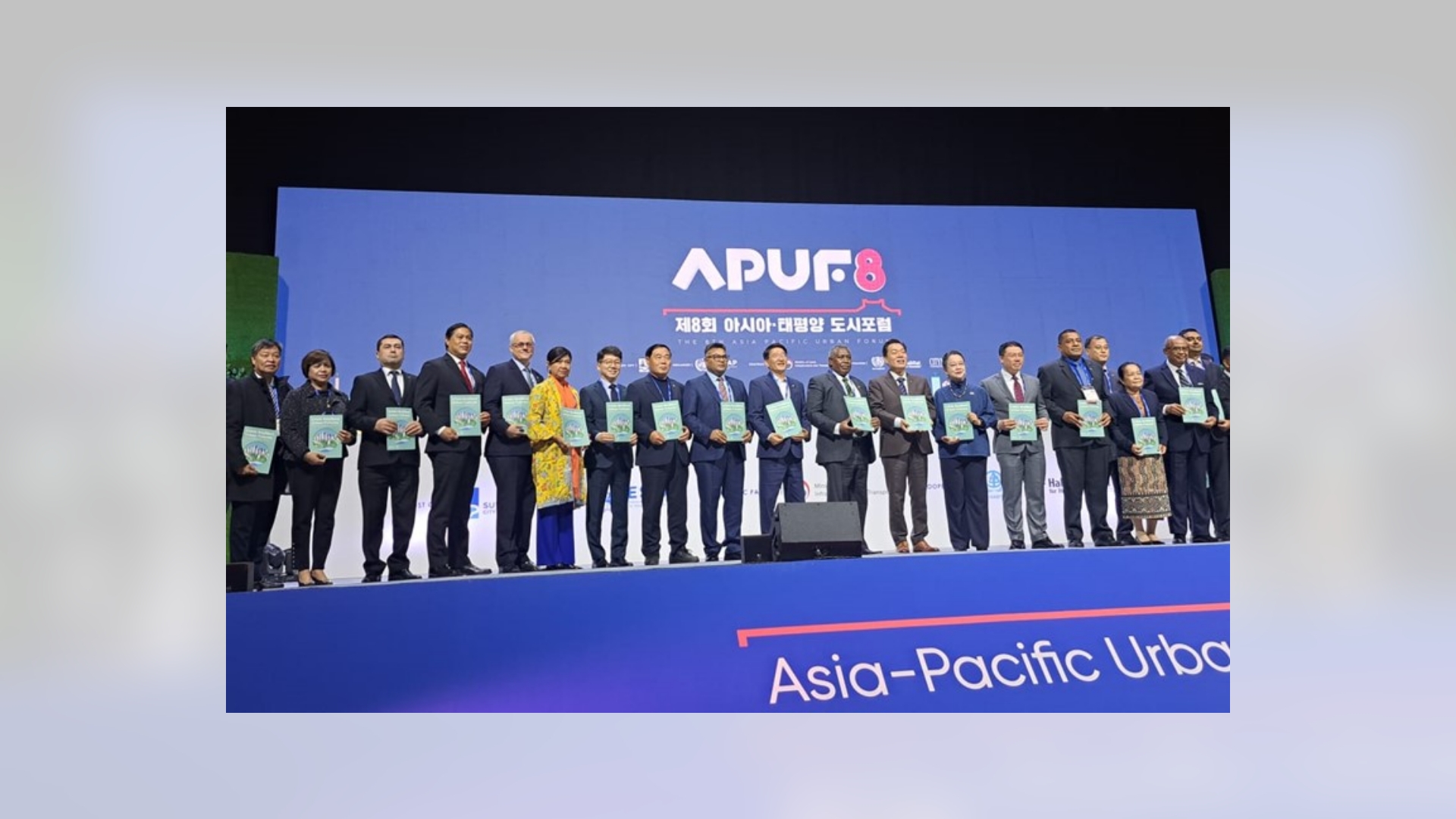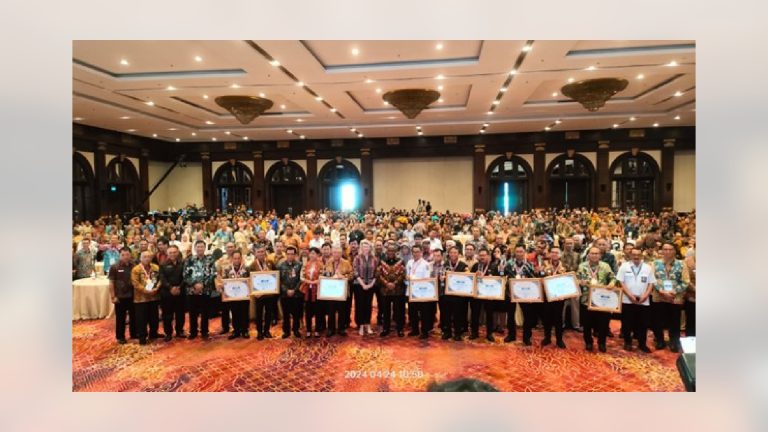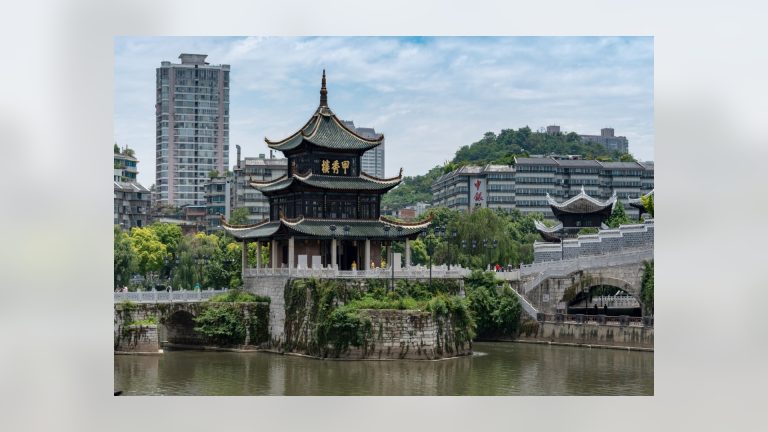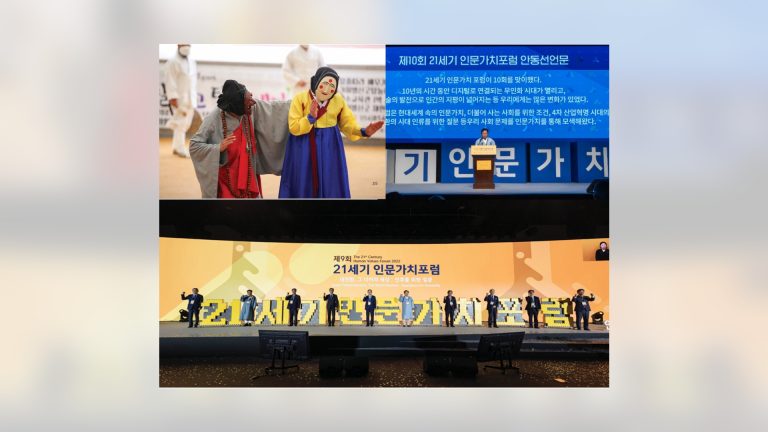October 23-25, 2023 | Suwon – UCLG ASPAC, under the framework of The Asia-Pacific Local Government Coordinating Body (APLG), facilitated the expression of the commitment of cities and local governments to the global agenda at the 8th Asia-Pacific Urban Forum through the Local Government Assembly and parallel sessions. The event, held in Suwon, South Korea, and organised by the United Nations Economic and Social Commission for Asia and the Pacific (UNESCAP), focused on urban and territorial planning, urban climate action, inclusive urban digitalisation, and urban finance.
Local Government Assembly
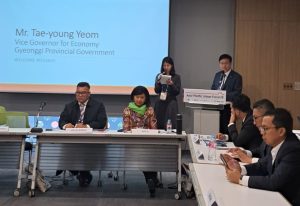
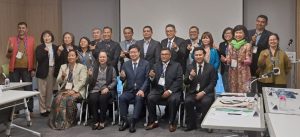
Parallel Sessions
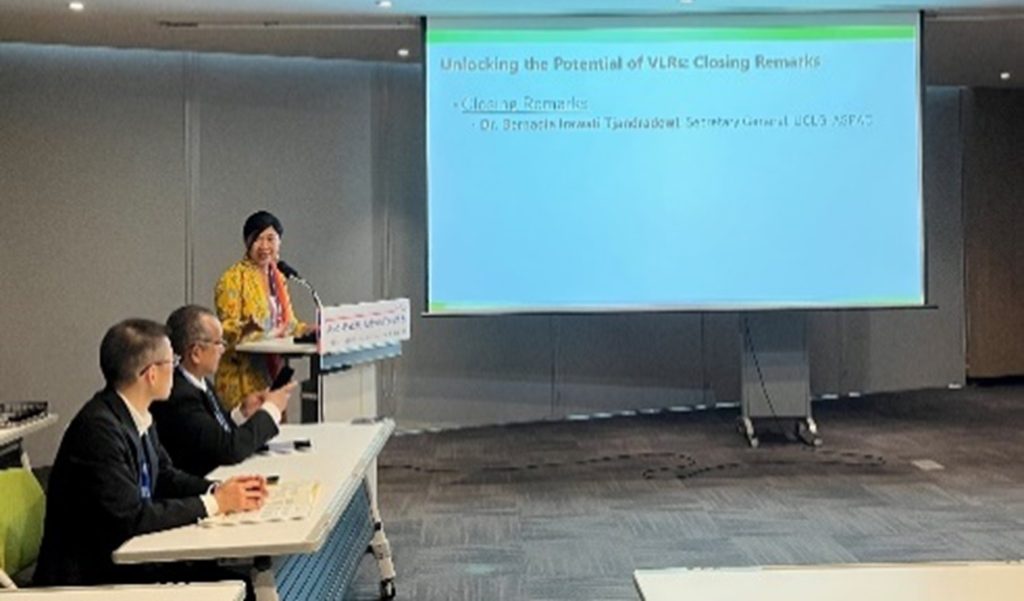
UCLG ASPAC co-organised three parallel sessions at APUF8. In her closing message during the parallel session on “Unlocking the Potential of VLRs: Building Sustainable Cities through Local Action and Follow-up and Review Processes,” UCLG ASPAC Secretary General Dr. Bernadia Irawati Tjandradewi encouraged cities and local governments to produce more than one VLR to allow comparison of progress through the years. On 24 October, UCLG ASPAC also co-organised a parallel session with UNESCAP, the Deutsche Gesellschaft für Internationale Zusammenarbeit (GIZ), Cities Climate Finance Leadership Alliance (CCFLA) on Enabling Frameworks to Support Asian Cities’ Ability to Access Climate Finance. This parallel session presented a regional assessment framework methodology for supporting cities’ access to climate finance in the countries of the Asia Pacific region. The keynote was addressed by a CCFLA representative who shared the latest state-of-the-art knowledge, data, and tools to assess challenges and opportunities to enable cities to access finance. Further, two cities (Medan City and Zhanjiang City) presented the lesson learned in assessing enabling conditions to scale up climate finance for low carbon and climate resilient urban development with key points below:
Mr. Guoxiong Wu, Vice Mayor of Zhanjiang
- Accelerating the green finance invocation is one of the key innovative actions from the city to implement the climate ambition;
- Promoting green production in the life cycle, zero waste for industry, green energy to accelerate green and clean energy ambition;
- Advancing the green ecology is seen as the city priority (pet land restoration area) in combination with eco-green tourism.
Mr. Benny Iskandar, Head of Medan City Planning and Development Department
- Enhancing the evidence-based data is the most important key element for the city climate risk assessment;
- Developing a comprehensive climate action plan that can identify the finance mechanism and enabling condition to access the climate finance from the national government that align with national strategic priority;
- Utilising the PPP partnership, energy consumption saving up to 82% using the LED (light-emitting diode), waste management project to replace the final disposal area in partnership with the private company;
- Accessing the City carbon credit opportunities;
- Promoting community engagement to implement the adaptation plan.
UCLG ASPAC Secretary General, Dr. Bernadia delivered her closing message during the parallel session of Urban-ACT and shared the progress of the City Enabling Environment on Environmental and Climate Government (CEE-ECG) assessment. According to the result, it found that three out of five Urban-Act countries (China, Indonesia, and the Philippines) already put in place necessary enabling conditions that allow cities and local governments to plan and finance their climate actions proactively. Furthermore, in these countries, there is a financial pot accessible to local governments and success stories of innovative climate actions at the city level. Nevertheless, there are still challenges for upscaling the enabling conditions for climate actions of local governments. First, multi-year co-financing frequently required is still an obstacle for local governments in many countries. Second, there are not enough capacity-building channels for local government financial managers in climate financing. Third, initiatives by the local private sector are still under-reported and less recognised.
UCLG ASPAC also participated as one of the co-organisers of parallel session on Leveraging Digital Innovation for Sustainable Urban Development co-organised by UNESCAP, UNHABITAT, and Seeds Star. The session was designed to share the experience of Smart Cities Innovation Lab (SCIL) initiative from UNESCAP to support cities in addressing urban challenges using smart technology. The three pilot cities (Chiang Mai, Sihanoukville, and Surabaya) were invited to present their practices together with selected local startups as service providers.
- Surabaya City (Jaramba): a startup based in Indonesia that support city of Surabaya to accelerate or integrate the transportation mode in the city and it helps city to have better bus route information and timing for public.
- Sihanoukville City (GEPP): a startup focuses on the waste management issue to support the city for public engagement improvement for collecting and recycling the waste.
Key policy documents were also released during APUF8: The Future of Asian & Pacific Cities Report 2023: Crisis Resilient Urban Futures and the High-Level Communique for Sustainable Urban Development in Asia-Pacific.
*****








